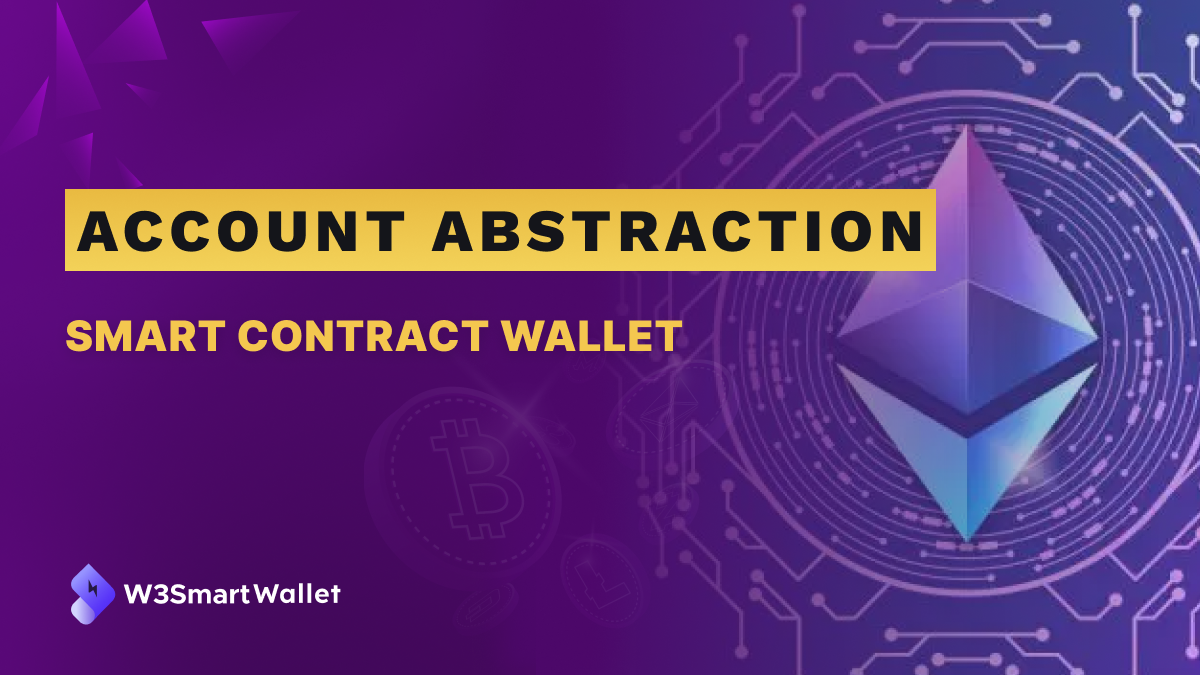
Account Abstraction - The Future of Wallets
After completing the long-awaited Merge, Vitalik Buterin focuses on another passion project: Account Abstraction. Account Abstraction in Ethereum provides a once-in-a-lifetime opportunity to rethink how wallets work, what accounts can do, and how accounts interact with dApps.
Externally-owned accounts (EOAs) - Ethereum’s types of accounts
EOAs are traditional accounts created with a wallet such as MetaMask. They contain a hidden private key and a derived public address and are used by most users to interact with the blockchain.
The signer and the account concepts are merged in this EOA-centric paradigm. The entity authorized to spend your tokens (the signer) is the same entity holding your tokens (the account). This causes issues because if an EOA account holder loses their signer (private key), they will lose their account. EOA accounts are difficult to secure and recover.
Because much of the functionality of EOAs is hardcoded into the core Ethereum protocol, they have several other limitations. EOAs, for example, only allow ECDSA (elliptic curve digital signature algorithm) to be used for signature verification, with no option to switch to a more efficient or quantum-safe algorithm. To clarify this, you can enable 2FA on your Gmail account. Similar customizability is not currently possible on Ethereum.
Simultaneously, the current Ethereum design requires that an EOA initiate all transactions and that only EOA can pay the gas fee (which must be paid in ETH). Ethereum is also inefficient because there is no way to batch operations (for example, approve + transferFrom).
EOAs disadvantages are at the crux of crypto adoption. This imposing system lacks the flexibility and accessibility needed to advance the dApp space. Account Abstraction aims to eliminate the shortcomings of EOAs and provide dApps with a UX that could rival and exceed the best of Web2. We believe that Account Abstraction will finally unlock crypto’s potential for mainstream adoption.
Why is Account Abstraction so important for Crypto Adoption?
Account Abstraction is a new paradigm that allows blockchain accounts to be programmed. Account Abtractions allows users to use the smart contract as their accounts (contract accounts) to hold assets and execute transactions instead of using EOAs. So, what problems can AA solve, and why is this an essential step toward crypto mass adoption?
In short, AA promises to bring better security and UX, resulting in a non-frictional experience in Web3. Here are some AA use cases that will bring crypto to the masses.
Recovery of Funds
Because blockchain is decentralized, crypto owners are solely responsible for their assets. While we eliminate the need for central entities to hold our funds, it also means that there is no one to turn to if we lose our private keys/seed phrases, which means that funds will never be recovered and will be lost forever.
By adding "Social recovery" to wallets, AA can assist us in recovering lost funds. Users can authorize the recovery of the private key by specifying a few Ethereum addresses.
These addresses are called "Guardians" and will only be called for assistance when necessary. They have no idea how many other "Guardians" are present or who they are to prevent them from complicity in stealing your assets.
Giving certain people our trust does not imply that we are going against blockchain ideology but rather that we are reclaiming our right to choose who we trust.
Safekeeping of Funds
Bad actors go to where the money is, so there is no surprise that crypto has become a targeted space in the past few years. Not only is everyone new to the ecosystem, but technology is changing so quickly that it makes identifying frauds and scams even more difficult.
AA's Solution: To avoid sending funds to scam addresses, users can set transaction limits and only allow transactions to known addresses.
Quantum Resistance
The current signing scheme employs ECDSA (Elliptic Curve Digital Signature Algorithm), but when quantum computing becomes available, it may break this ECDSA encryption, rendering the blockchain network unsafe.
AA's solution: Through signature abstraction, different account contracts can use more efficient and quantum-secure signature schemes to protect the network from future quantum attacks.
Better UX
An unfamiliar User Experience and User Interface is a significant barrier that prevents newcomers from entering and existing users from injecting more funds and better utilizing their funds.
AA's solutions:
⚡️ Seedless Onboarding: No longer will seed phrases be required; instead, using a crypto wallet will be as simple as logging into an email and social media accounts.
⚡️ Gasless Experience: Users will be able to pay for gas in tokens other than Ether, so they can settle transactions as long as they have tokens in their wallets.
⚡️ Multicall - For 1 Tap: AA supports multi-call, allowing us to bundle and execute multiple transactions simultaneously.
⚡️ Session Key: AA allows for session keys in dApps - a breakthrough for UX. Users can predetermine rules with a protocol for a specific timeframe, such as 10 minutes so that signing can be done automatically.
The future of Web3 Wallet
Account abstraction is a powerful concept altering our interactions with blockchain networks. Account abstraction opens up new possibilities for developers and users by replacing traditional EOAs with smart contract wallets containing arbitrary verification logic. Users can tailor their account security to their needs and preferences by creating custom verification logic. Account abstraction combined with MPC introduces off-chain data possibilities into verification logic.
For a self-custodial account abstraction Web3 Wallet dedicated to Web3 Gaming, check out W3Smart Wallet. Our Wallet empowers game developers and gamers with easy onboarding, multi-level security, and a native trading platform for all your crypto trading needs.






